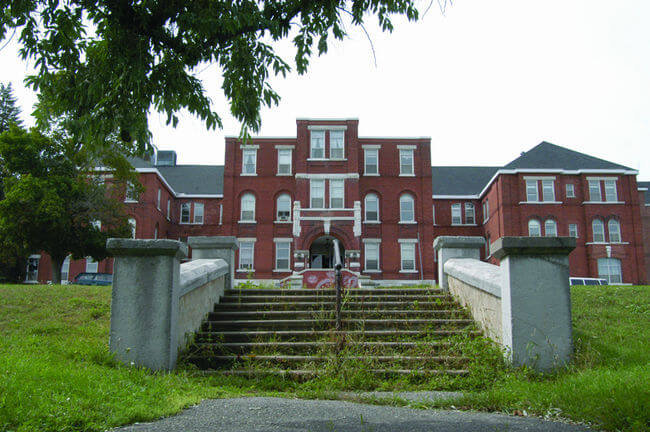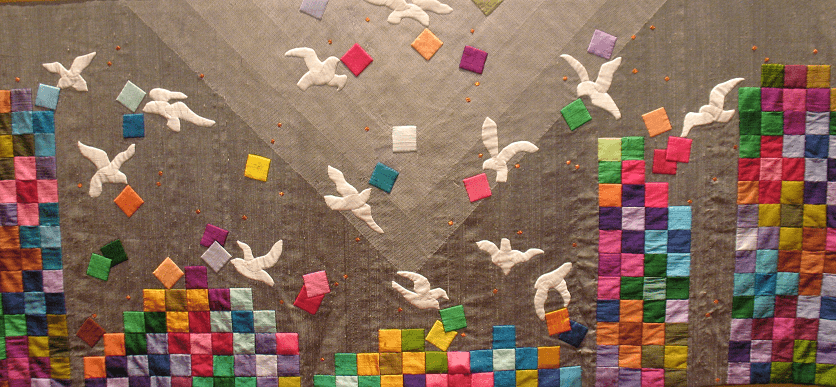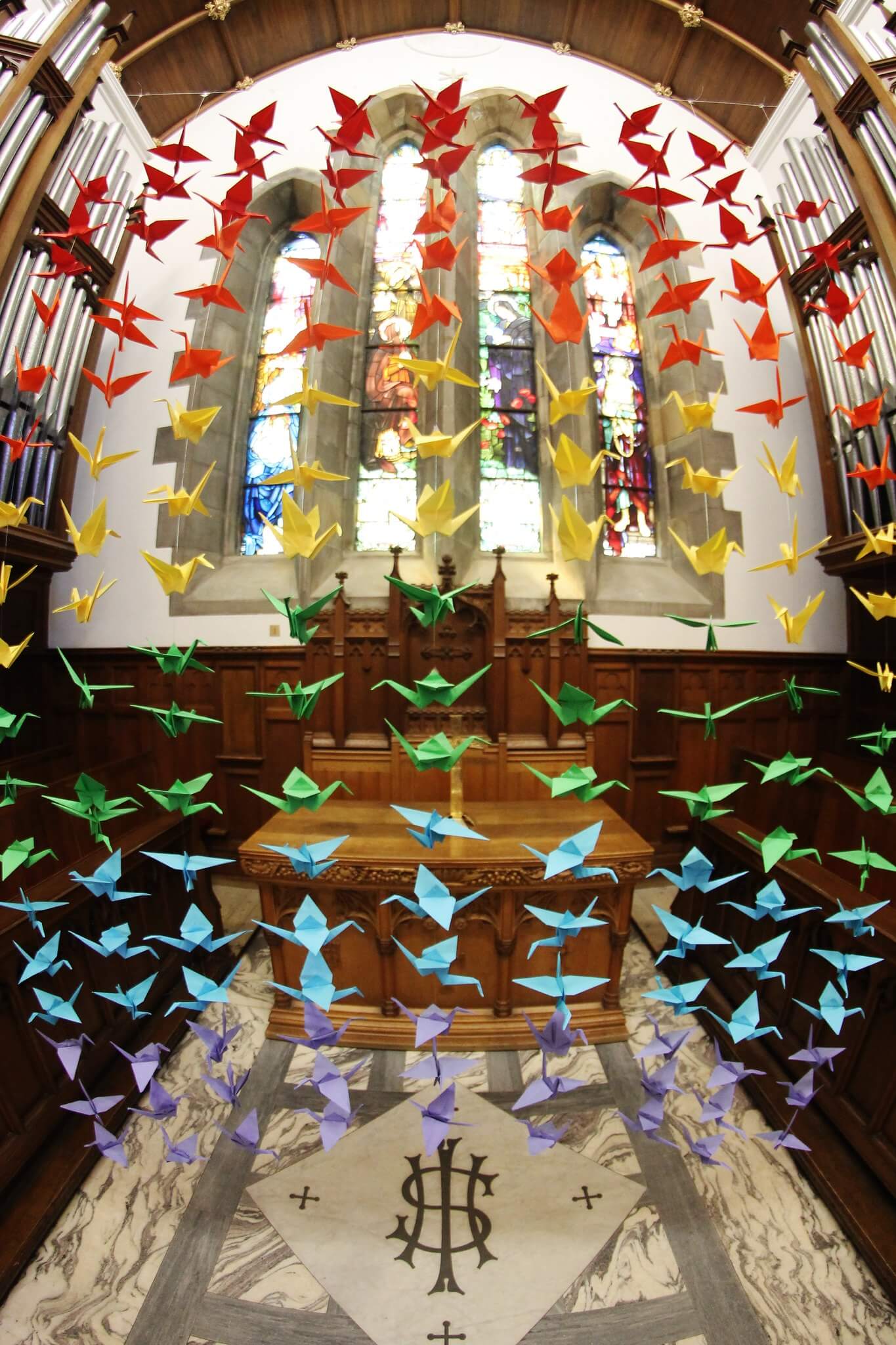Please find attached my September 18, 2015 update and reflection about the Huronia Regional Class Action settlement, which was presented to court on September 17, 2013.
Huronia Regional Centre class action UPDATE – September 18 – PDF
Huronia Regional Centre class action UPDATE – September 18, 2015
(with implications for Rideau and Southwestern)
It was 2 years ago yesterday when the Huronia Regional Centre settlement was presented in court, stopping the trial that was to have begun the day before. Marie Slark, Patricia Seth, Jim and I marked this anniversary by speaking at a community agency professional development retreat. Having talked about the indignities of the past and the challenges of the class action, it was encouraging to hear a group of people provide direction to the agency staff whose job it is to support them. It was all about change, and people with disabilities having control over their lives, and being heard and respected.
Two years ago, I hopefully attached this inspirational quote from Maya Angelou to an update: “History despite its wrenching pain, cannot be unlived, but if faced with courage, need not be lived again.”
Compensation cheques were mailed on August 25 – but by regular mail. This means cheques may have been lost, especially if people have moved.
If people have not received theirs by now, they should contact Crawford Class Action – immediately.
We do not understand why Crawford would post a message– http://www.huroniaclassaction.com/index1.html – saying people might wait a month to contact them!
For some reason, Crawford Class Action did not send people acknowledgement that claims were received in the first place. If they say they never received your claim, you will need to contact Koskie Minsky Law.
Cheques must be cashed within 6 months.
Cheques were made out to class members, even those who had died.
Those who claimed on behalf of someone who died will have to find a way to redeem the funds. Some were named in wills; others will need to engage a lawyer to be named estate trustee now. Some may still have joint accounts, in which cheques can be deposited. One sister reconnected with the bank employee who had assisted her to close her brother’s account when he died; the bank arranged for her to sign a solemn declaration allowing her to deposit the cheque into another account.
Class members may now want to make wills or otherwise determine where their estate will go, should they die before spending the money.
Class members are telling us about setting up tax-free savings accounts, investing in GICs, and asking trusted people to help them keep their money safe. This money will not make anyone ineligible for ODSP or other Ontario social service benefits. It is not taxable.
Yesterday, we watched again the September 17, 2013 CBC television news coverage after the settlement. Please watch and reflect – with hindsight – at http://www.cbc.ca/player/Embedded-Only/News/Toronto/ID/2406926618/
A similar clip was broadcast on The National, introduced by Peter Mansbridge. We were pleased that this news was carried all across Canada that day – especially because Alberta, Saskatchewan and Manitoba still operate similar government institutions.
So the CBC was wrong to say this was “the end of an era”.
The CBC was also wrong to say that people would receive compensation early in 2014. While pressuring them to settle, the lawyers actually told Marie and Pat that meant they could have their money in the Fall of 2013, which was never possible at all. It has been a difficult 2 years of waiting, while we found out what the settlement really involved and how the claims review evolved.
Sadly, it was too long for some people, who did not live to benefit.
Pat Seth said she was “relieved and elated” the day of the settlement, but that feeling was short-lived. When the CBC interviewed us on September 17/13, neither Pat, Marie, Jim nor I had even seen the final version of the settlement the lawyers had signed and presented it to the judge.
We never did sign it and we presented our concerns about it to the judge in affidavits, and at the settlement hearing.
People have been telling us how they felt when they got their cheques.
• Receiving payment often brought back a flood of awful memories. One woman said she “felt cold”; several said they felt it was “blood money”. One person waited almost a week before opening the envelope.
• Those who got more felt badly about those got less.
• People could get 1000 points and each point ended up being worth $42 – which was the upper level at which the lawyers had capped payment, even though there was money left over.
• No HRC funds will revert to government, but some of the Rideau and Southwestern settlement funds will.
• Those hurt before September 1, 1963 at Huronia got only half the money as those who endured the same hurt later. (People hurt before that date at Rideau and Southwestern got nothing. None of the class actions relating to 12 other similar Ontario institutions goes back before 1963 either.)
The CBC was wrong to say that “$35 million” would be “equally divided”.
After money went to lawyers for fees, expenses and the Class Action Fund, there was about $24 million left. Of this, about $19.4 million was paid out to claimants.
• The point system was not sent out with the claim forms but was later posted at http://www.kmlaw.ca/site_documents/HRCRRCSRC_PointsChart_02jun14.pdf.
• We can now see how arbitrary this system was. The person who experienced one attempted sexual “penetration” got the same number of points as someone who was actually raped – perhaps every night for years – or those traumatized because they were forced to rape others. One woman did not get points for “attempted penetration” even though she said a staff member had “tried to rape her”, and had injured her in that attempt.
• Not all of the important words were defined in the settlement at http://www.kmlaw.ca/site_documents/080659_SettlementAgreement_17sep13.pdf. Much was left to the discretion those who reviewed the claims.
• The emphasis while preparing for trial before September 17/13 seemed to be on systemic “neglect” – underfunding, overcrowding and understaffing. But it turned out that harm caused by neglect would not earn points. This presented big obstacles to class members who could not remember or who could not say what had happened, because institution record-keeping was often negligent too, and their files usually didn’t explain what happened. One man did not receive compensation for a fractured hip and serious head injury, because the file said he “fell”, and he cannot say whether he was pushed.
• Knowing how coercive life in institution was, we always thought claims about sexual activity would readily be deemed “non-consensual”. However, Ian Binnie – who had oversight of the claims review – determined that sexual activity of those aged 6 and over (chronologically or mentally) could be deemed “consensual”. If the file said anyone instigated it (even if staff should have stopped them), no points would likely be awarded.
• On August 14/15, The Toronto Star warned that almost 400 Huronia claimants might be shocked to find out they were getting just $2000 – see http://www.thestar.com/news/gta/2015/08/14/hundreds-of-huronia-claims- downgraded-without-notice.html. We have now been hearing from those people who did not get points, even though their claims provided detailed evidence of harm.
With their cheques, everyone received a cover letter, which stated at what Level of physical and sexual harm their claim had been rated. This information might help us to review the claim and consider how it might have been evaluated. Please be sure to keep the cover letter and save the entire claim you made.
Together, they provide an important way to keep telling your story.
Edgar Riel told the CBC “I came here for justice”.
The settlement actually denied government responsibility, and some now wonder whether it was just a way to cover up the real story.
People were moved by the formal government apology which came from Premier
Kathleen Wynne on December 9, 2013, and was to everyone affected. Perhaps you’d like to listen at
http://www.mcss.gov.on.ca/en/mcss/programs/developmental/Huronia.aspx
Outside court that day two years ago, I told the CBC that the settlement should be “a commitment … to never forget”.
Pat Seth told the CBC that Huronia “was supposed to help us”, but “we carry the scars – emotionally, mentally and physically”.
In spite of detailed claims, many people received very little compensation. This means there is considerable money left over in each of the settlements. We want to ensure that it is used well to support survivors, and that the decision-making process (under Schedule D of the settlement) is fair.
The settlement denied people the chance to testify at trial and class members want help to tell their stories now – so “the lessons of the past are not lost”, as the Premier said. Through 13 days of site visits to HRC and our many connections with class members and their allies across the province, we have seen reconciliation begin when their truth is respected. Government programs threaten to hide that truth.
Schedule D provides a unique opportunity for class members to compile their history and create trauma-informed support that strengthens their autonomy.
Having suffered under the control of others, class members and representative plaintiffs want to be fully included in decisions about how their hard-fought Schedule D money is spent. We want to ensure that class members – not the defendant’s interests – are served by the allocation of these funds.
Class counsel is not shown in that CBC news coverage. They were not with us outside court that day, two years ago.
Koskie Minsky now wants the court to release the last $1 million of their approved fees, which they had earlier asked the court to hold back until the settlement was completed. This was delayed after we wrote to Justice Barbara Conway about unfinished settlement business, Schedule D and the incorrect and incomplete HRC cemetery list. She will decide about releasing the rest of the legal fees in open court on Friday October 16/15 between 10 and 11 am.
I would like to share with you some other important archival coverage – with thanks to Michael Callahan – on CBC radio, the day after the settlement at http://castroller.com/podcasts/CbcRadioToronto/3740121
Tonight I found a message a wise friend sent me two years ago: “So the 35 million is one thing. The apology—however that is voiced—is another. But what of reconciliation and healing? How can those years of abuse—so much pain unavailing—be assuaged? wounds be bound up? Lost ones cherished and valued, as in your case? Will something be built into the aftermath that will truly lead to better things, better outcomes for these dark years? I just hope that the financial settlement is not just money given to people to send them away.”
The celebration shown then by CBC news was fleeting. Our advocacy had only just begun. There is still so much more to do, to achieve “better things”, and to stop sending people “away”.
In her related work for “TRUTH” and “RECONCILIATION”, Commissioner Marie Wilson said to survivors of Indian Residential Schools:
“I see you; I hear you; I respect you; and I love you.”
Maybe that is the best place for us to start too.
Marie Slark, Pat Seth, Jim and I have shared peoples’ sadness and frustration.
As Pat told agency staff at the professional development event yesterday:
just one tear – shed by any of us – can start a ripple, for positive change.






